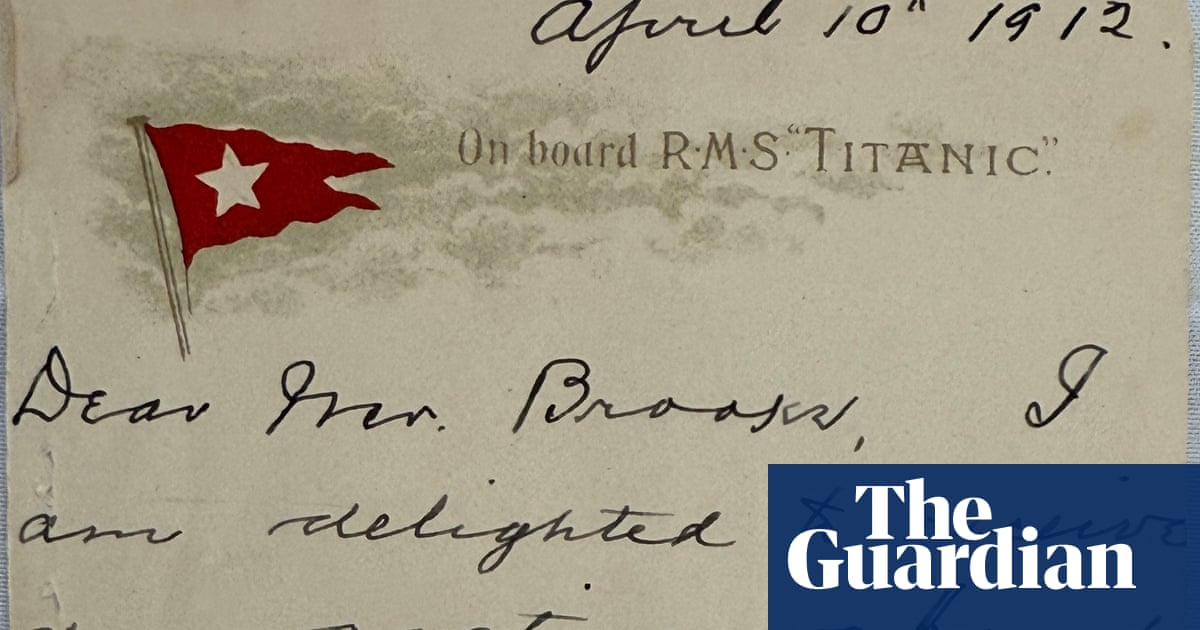A letter written by a survivor of the Titanic disaster has sold for a record £300,000 at auction.
First-class passenger Col Archibald Gracie wrote The Truth About the Titanic, which described his experience of the 15 April 1912 tragedy that claimed 1,500 lives on the vessel’s journey to New York.
The letter card is dated 10 April 1912, the day he boarded, and is postmarked Queenstown 3.45pm on 11 April and London on 12 April.
It said: “It is a fine ship but I shall await my journeys end before I pass judgment on her.”
The item sold for five times the expected price of £60,000 at Henry Aldridge and Son of Devizes, Wiltshire on Saturday.
It is the highest price ever achieved for a letter written on board the Titanic, the auctioneers said.
Letters from “survivors of Gracie’s profile” rarely, if ever, come to market and the item has never before been offered for sale, the auctioneers added.
The seller’s great-uncle, who was an acquaintance of Gracie, received the letter at the Waldorf hotel in London.
It was written over four sides and added: “The Oceanic is like an old friend and while she does not possess the elaborate style and varied amusement of this big ship, still her sea worthy qualities and yacht like appearance make me miss her.
“It was very kind of you to give me this kindly send off, with best wishes for your success and happiness, Archibald Gracie.”
The colonel “spent much of the voyage chaperoning various unaccompanied women” including a woman and three sisters who survived, the listing said.
On 14 April, he played squash and swam in the Titanic’s swimming pool before attending church and socialising.
At about 11.40pm he was jolted awake and discovered the ship’s engines were not moving.
He helped women and children on to lifeboats and fetched them blankets before the ship dipped below the water’s surface in the North Atlantic Ocean.
Gracie managed to scramble on to an overturned collapsible boat along with a few dozen other men.
There were swimmers around them but those aboard paddled away through fear the vessel could be overwhelmed.
The colonel later wrote: “In no instance, I am happy to say, did I hear any word of rebuke from a swimmer because of a refusal to grant assistance.”
One refusal “was met with the manly voice of a powerful man” that said “all right boys, good luck and God bless you”, he reported.
He also said more than half the men who had originally reached the collapsible died from exhaustion or cold and slipped off the upturned keel during the night.
Henry Aldridge and Son said The Truth About the Titanic is “one of the most detailed accounts of the events of the evening”.
The auctioneers added: “It is impossible to overstate the rarity of this lot, it is written by one of the highest profile survivors, with excellent content and on the rarest of mediums, a letter card.
“A truly exceptional museum-grade piece.”
